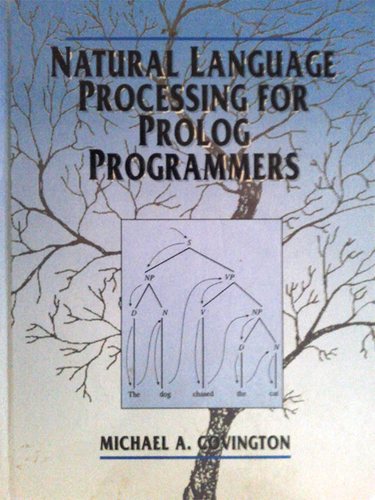
Natural Language Processing for Prolog Programmers
by Michael A. Covington
Publisher: Prentice-Hall 1994
ISBN/ASIN: 0136292135
ISBN-13: 9780136292135
Number of pages: 361
Description:
Designed to bridge the gap for those who know Prolog but have little or no background in linguistics, this book concentrates on turning theories into practical techniques. Coverage includes template and keyword systems, definite clause grammars (DCGs), English syntax, unification-based grammar, parsing algorithms, semantics, and morphology.
Download or read it online for free here:
Download link
(32MB, PDF)
Similar books
 Natural Language Processing for the Working Programmer
Natural Language Processing for the Working Programmerby Daniël de Kok, Harm Brouwer
We will go into many of the techniques that so-called computational linguists use to analyze the structure of human language, and transform it into a form that computers work with. We chose Haskell as the main programming language for this book.
(16447 views)
 Formal Language Theory for Natural Language Processing
Formal Language Theory for Natural Language Processingby Shuly Wintner - ESSLLI
This text is a mild introduction to Formal Language Theory for students with little or no background in formal systems. The motivation is Natural Language Processing, and the presentation is geared towards NLP applications, with extensive examples.
(10823 views)
 Computational Linguistics
Computational Linguisticsby Igor Boshakov, Alexander Gelbukh
The book focuses on the basic set of ideas and facts from the fundamental science necessary for the creation of intelligent language processing tools, without going deeply into the details of specific algorithms or toy systems.
(22361 views)
 Prolog and Natural-Language Analysis
Prolog and Natural-Language Analysisby F. C. N. Pereira, S. M. Shieber - Center for the Study of Language
A concise introduction to logic programming and the logic-programming language Prolog both as vehicles for understanding elementary computational linguistics and as tools for implementing the basic components of natural-language-processing systems.
(20974 views)